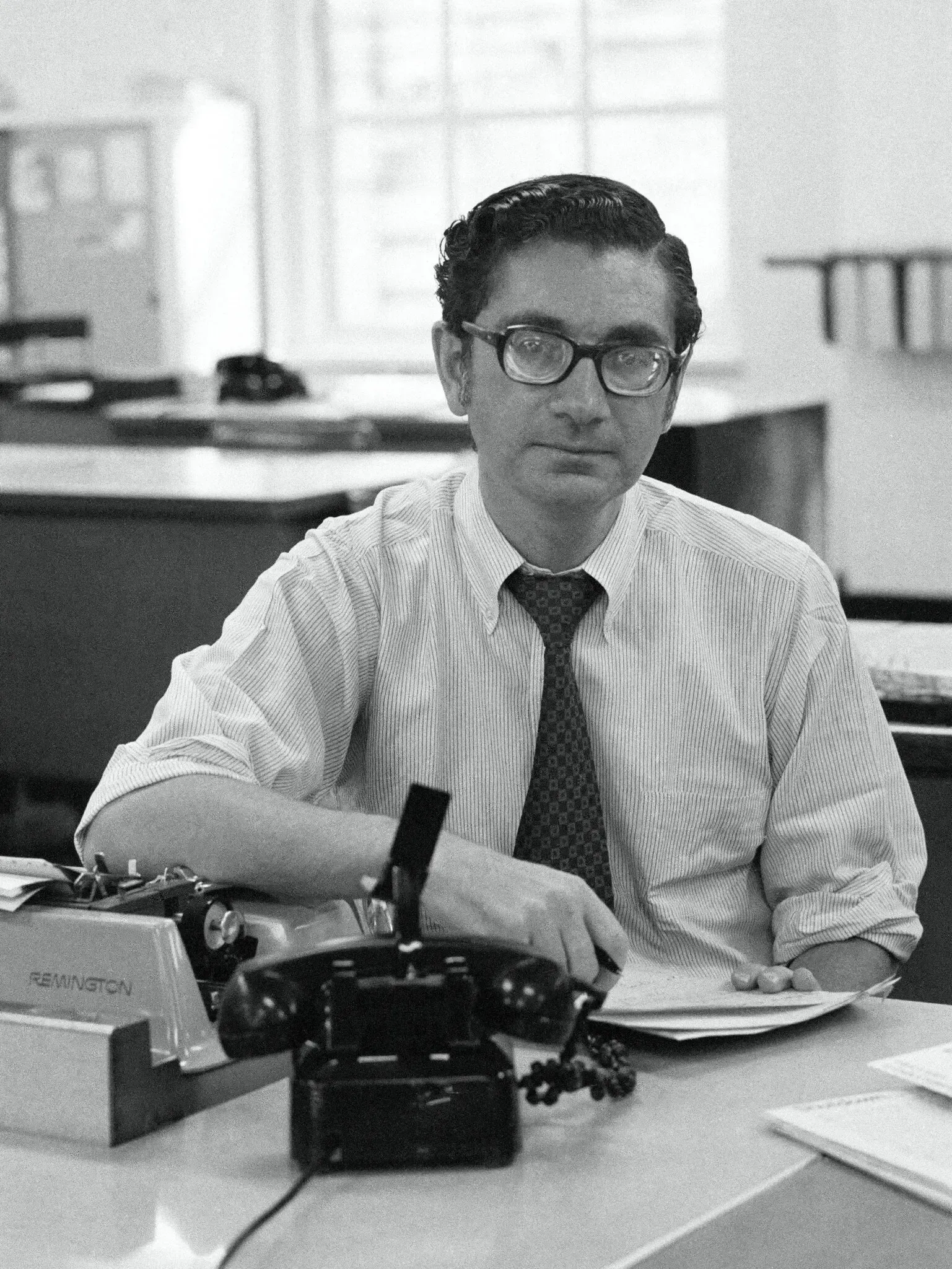Marvin Kitman
Iconoclastic Reviewer of Our Most Popular Medium
Marvin Kitman once claimed he never watched television until someone paid him to do it.
“I may be crazy,” he said, “but I’m not stupid.”
Nonetheless, Kitman devoted much of his life — including more than 35 years as the television critic at Newsday — in front of a TV. His views of the medium weren’t exactly what television executives wanted to read, but that mattered little to Kitman, whose iconoclastic, irreverent and witty verdicts made his syndicated column one of Newsday’s most popular features.
A long-time Silurian who made several appearances as a luncheon speaker over the years, Kitman died of cancer on June 29 at the Actors Fund Home in Englewood, N.J., not far from his home in Leonia. He was 93.
Kitman’s critiques had nothing to do with the size of a particular program’s viewing audience. He was generous with praise for such innovative programs as “All in the Family,” “Seinfeld,” “M*A*S*H” and “Monty Python’s Flying Circus,” and he skewered numerous shows that drew major audiences — “Laverne & Shirley,” “Three’s Company” “Dallas” and “Charlie’s Angels,” for example — labeling them “pap.”
As befits a critic, he exuded self-confidence. While enrolled at CCNY in the 1950s, he wrote a column for one of the student publications. It was modestly called “I’m Never Wrong.” He titled his first book, a 1966 memoir, “The Number One Best Seller.” It wasn’t, but it launched his career as an author. Other books that followed included “George Washington’s Expense Account” (1970), a Kitmanesque view of how the nation’s first president handled his swindle sheet, and “The Man Who Would Not Shut Up: The Rise of Bill O’Reilly” (2007). His last book was “Gullible’s Travels: A Comical History of the Trump Era” (2020).
His honors include a Folio Award in 1988, a Humor Writing Award from the Silurians in 1991, and a Townsend Harris Medal from City College in 1992. In 1982, he was a finalist for the Pulitzer Prize for criticism.
In 1964, Kitman gave himself a ringside seat to presidential politics, playfully entering the New Hampshire primary as a “Lincoln Republican.” He said he was against slavery and declared, “I would rather be president than write.”
“My purpose was to satirize the campaign,” he explained to a reporter in 1972. “Eventually, I got caught up in it and my purpose was to become the president. People are always bringing it up, but I’d like to forget the whole thing. I’m a sore loser.”
Kitman was born on Nov. 24, 1929, in Pittsburgh. His family moved to Brooklyn, where he graduated from Brooklyn Tech High School, one of the city’s elite institutions. After graduating from CCNY in 1953, he served two years in the Army, writing for the post newspaper at Fort Dix, N.J. (“the last time I did anything to fight communism”).
He went on to hold a variety of jobs, including writing copy for Carl Ally, a Madison Avenue ad agency, and freelancing for publications such as the Saturday Evening Post and Monocle, a politically impudent humor magazine.
In 1967, during the Nixon administration, he was hired as a TV critic for New Leader Magazine. Two years later, on Dec.7,1969, he began writing for Newsday, “a day that will live in infamy,” he said, “as far as the TV industry is concerned.”
As the newly minted TV critic for one of New York’s daily newspapers, Kitman quickly proclaimed that his qualifications for the job were outstanding.
“I once ran for president, so I can interpret political stories,” he said. “When Dick [Nixon] does — or doesn’t — hold a press conference, I know what he’s doing. I went through all that myself. And I have no background in TV, per se. I never used to watch it. As a freelance writer, I was afraid of becoming addicted. As a result, I have a fresh eye. And the reruns . . . a lot of critics are against reruns. I love them. I never saw the program the first time.”
Kitman’s fear of becoming addicted to the tube once he became a critic proved groundless.
“I’m too busy writing about television to actually watch it,” he said.
His last column for Newsday ran on April 1, 2005.
From 1981 to 1987, Kitman himself appeared on television as a media commentator on “The Ten O’Clock News” on WNYW (formerly WNEW) in New York. His commentaries were also heard on the old RKO Radio Network.
When his days as a columnist were over, Kitman presented his thoughts on a blog, commenting on everything from websites run by multimillionaires who exploit writers by underpaying them to political scandals involving the people who run his state.
Commercials, he once said, provide television’s most educational moments.
“If you can teach a kid, at an early age, that advertisers lie,” he said, “that’s educational.”



